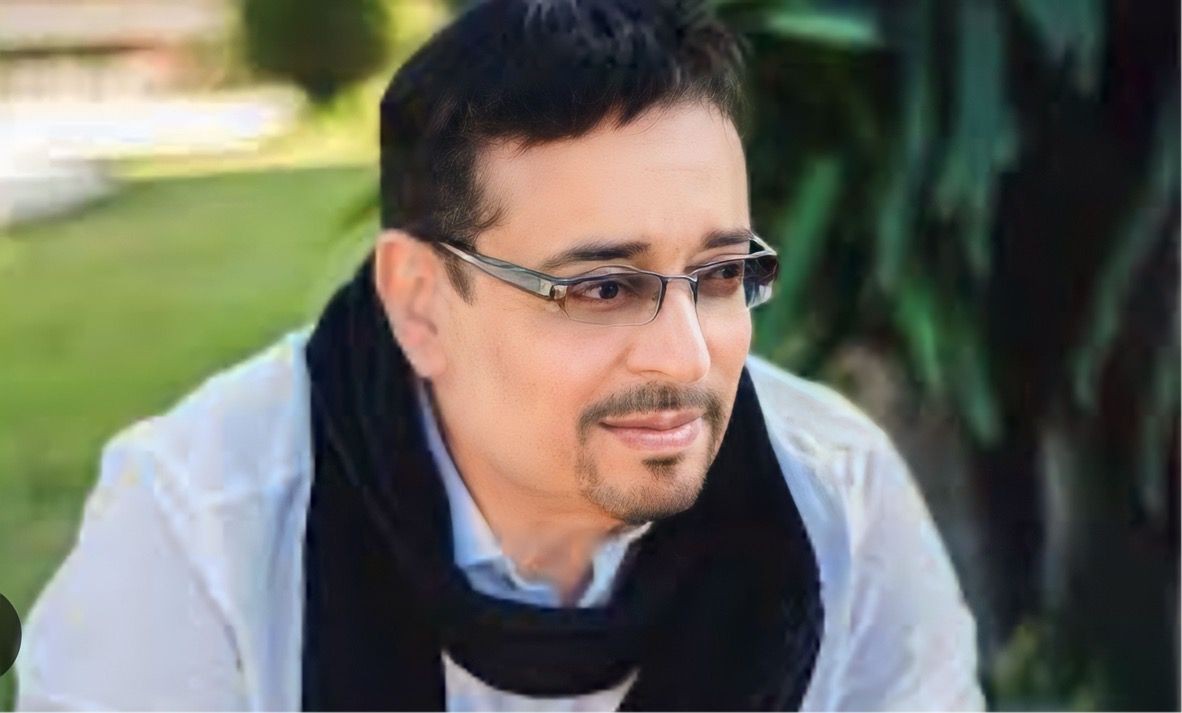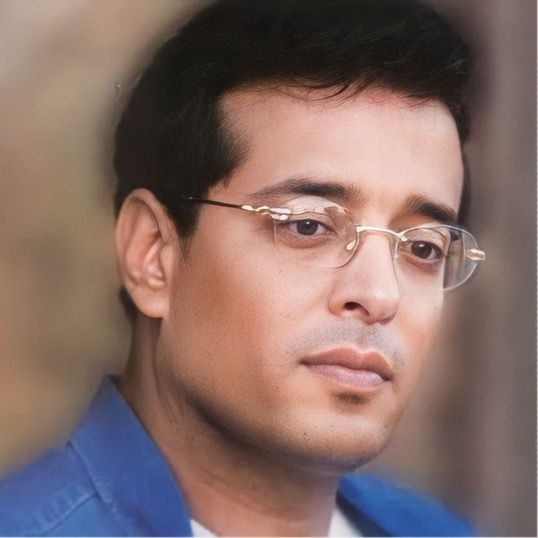Fate decided to bind a deep friendship between my father - may he rest in peace - and Hajj Abdel Khaleq, the father of the late singer Alaa Abdel Khaleq - may they both rest in peace. My father was the Imam of one of the largest mosques in Ain Shams' Arab region, and Hajj Abdel Khaleq was a regular visitor to the mosque. They had long gatherings that my father would tell me about time and again. Alaa would often pass by them, always keen to visit his father, who lived in an apartment next to the mosque after retiring and the early passing of Alaa's mother. Despite the father remarrying after the mother's death, the son never neglected his father and was keen to visit him until his departure in the early 2000s. My father and Hajj Abdel Khaleq would exchange talks about their two sons, who were both involved in the art world in one way or another, against their wishes. Alaa heard my name from his father, and I heard stories about him before we ever met face to face.

In 1996, circumstances led me to join the media committee of the Cairo International Song Festival, after significant support from my friend, Professor Saeed Jamal El Din Sarhan. The festival, which was organized and hosted by the Cairo International Conference Centre, wrote the birth certificates for many Arab singing stars like Kazem El Saher and others. Alaa Abdel Khaleq was one of the most important stars of the new Egyptian song during this period. It was only natural for him to be one of the stars of the concerts at the Chinese Garden in the Center, which were allocated for young singing stars - a term that stuck with the stars of that period, including Alaa.
During the media committee meetings, we would discuss the topics and dialogues of the newsletter, which would be issued on the sidelines of the festival. The late great journalist, Professor Helmi Salem, editor-in-chief of the magazine Al Kawakeb - may he rest in peace - presided over its editing. Its editorial staff included a group of art journalism stars, like Professor Mahmoud Hassouna, a journalist at Al Ahram, and Professor Nader Ahmed, deputy editor-in-chief of Al Gomhuria newspaper, among other senior colleagues.

The star interviews were distributed among us, and Alaa Abdel Khaleq's interview was given to Professor Saeed Jamal El Din. To my surprise, he invited me to participate in the interview and set up a time with Alaa. We went together to Alaa's apartment on a street branching off Abbas El Akkad Street in Nasr City. Upon arrival, we found Alaa waiting for us. After the greetings and concluding the interview, we started another session discussing many artistic matters. When I began talking about the hidden part of Alaa's life, he asked me: "How do you know all this?" I told him, "I know all your secrets from the gatherings of our fathers." He said, "So you're Ahmed?" I replied, "Yes." He told me, "My father used to tell me a lot about you from what your father said."
The relationship continued, wrapped in goodwill, until a long time when Alaa disappeared completely. His name resurfaced again later with the marriage of his son Hukm to the daughter of Captain Mahmoud El Khatib, and then his decision to return to singing through the Saqia concerts and cultural centers.
In 2009, I was buying clothes from a store in Yarmouk camp in Damascus, Syria, and my mobile phone rang. The ringtone was a fantastic introduction by Alaa Abdel Khaleq , "Why does love have a friend?" The young salesman expressed his admiration for the ringtone and said to me, "This is a song by Alaa Abdel Khaleq." When I returned, I told him what happened to me in Syria, and he was happy that his songs were widespread and continuous with the Arab audience.
Alaa's musical impact was tremendous, and I believe he deserves our recognition and study. He was among the first voices for which the late Ahmed Mounib composed music. His voice also compelled the great director, Sherif Arafa, to delve into directing music videos.
Despite years of disappearance, distancing, and the long solitude that Alaa took as a life path, you never feel his absence. His voice and songs formed a significant part of our lives, a part we return to whenever life's waves struggle with us and try to snatch away our sweet memories and their stories.
Comments